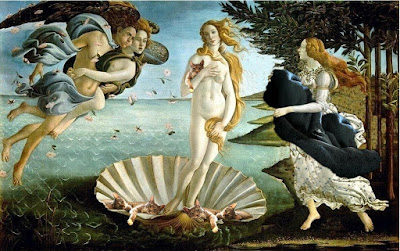Story Lab, Week 4
For the story laboratory this week, I decided to watch the three videos from the Overview of Mythology crash course.
1. What is Myth? I didn't realize that mythology incorporated so many things such as literature, history, anthropology, sociology, psychology, and religion. Because of everything it consists of, it causes a lot of misunderstanding of the word "myth". I thought it was interesting that they said that just because something is a myth doesn't necessarily mean the story is untrue or that it is true because most of my life whenever I hear something is a myth, I assume it's fake. It makes sense that the word "myth" comes from the Greek word "mythos" which means "story". Even more specifically, that a myth is a story with significance and staying power.
2. Theoretical Approaches. People have academically interpreted myth in many different ways. Plato had thought of myths as lies, irrational, and false. Philosophical myths were considered rational and true however. Euhemeros interpreted myths as primitive explanations of the world, although this idea was not prevalent in his time, they carried onto Roman thinkers later. A new theory later formed from Christians that myths were based by demons to contrast between heavenly goods and bads. Myths also joined with anthropology in the 20th century. Interpretations of myth continued to change beyond this.
3. We Could Be Heroes. Heroes are the people at the center of many mythological stories. Joseph Campbell says that heroes tell us something about ourselves. Ava Theory and Margaret Divini interpret Campbell's statement as us being the heroes to our own stories. The term "monomyth" refers to a hero's journey and is made up of three parts: separation, trials and victories of initiation, and return, each part consisting of multiple elements.
1. What is Myth? I didn't realize that mythology incorporated so many things such as literature, history, anthropology, sociology, psychology, and religion. Because of everything it consists of, it causes a lot of misunderstanding of the word "myth". I thought it was interesting that they said that just because something is a myth doesn't necessarily mean the story is untrue or that it is true because most of my life whenever I hear something is a myth, I assume it's fake. It makes sense that the word "myth" comes from the Greek word "mythos" which means "story". Even more specifically, that a myth is a story with significance and staying power.
2. Theoretical Approaches. People have academically interpreted myth in many different ways. Plato had thought of myths as lies, irrational, and false. Philosophical myths were considered rational and true however. Euhemeros interpreted myths as primitive explanations of the world, although this idea was not prevalent in his time, they carried onto Roman thinkers later. A new theory later formed from Christians that myths were based by demons to contrast between heavenly goods and bads. Myths also joined with anthropology in the 20th century. Interpretations of myth continued to change beyond this.
3. We Could Be Heroes. Heroes are the people at the center of many mythological stories. Joseph Campbell says that heroes tell us something about ourselves. Ava Theory and Margaret Divini interpret Campbell's statement as us being the heroes to our own stories. The term "monomyth" refers to a hero's journey and is made up of three parts: separation, trials and victories of initiation, and return, each part consisting of multiple elements.
 |
| Birth of Venus, Botticelli. Source: Flickr. |


Comments
Post a Comment